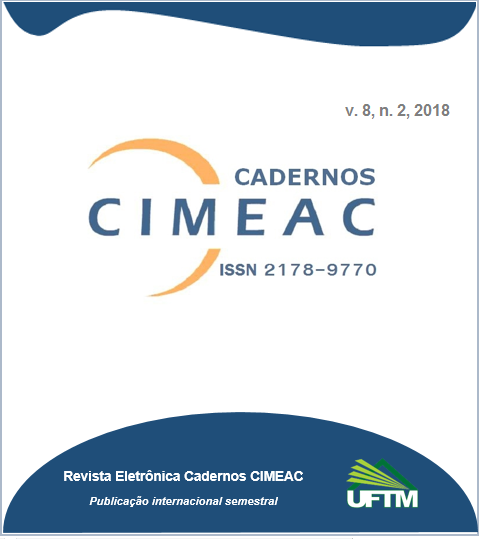Democracia, ciudadanía y participación: apuntes clave para la educación en derechos humanos / Democracy, citizenship and participation: keynotes for human rights education
DOI:
https://doi.org/10.18554/cimeac.v8i2.2883Abstract
El documento que presentamos tiene como objetivo realizar un ensayo al poner en relación términos como Educación para la Ciudadanía y Derechos Humanos en clave pedagógica y social; ya que parece un marco conceptual interesante y relevante para una educación integradora que responda a los desafíos asociados a la sociedad globalizada. En este marco se realiza una lectura reflexiva en relación a cuatro conceptos clave como son Educación en Derechos Humanos, Democracia, Ciudadanía y Participación Social. A tal fin, en primer lugar, presentamos la Declaración Universal de los Derechos Humanos como un hito histórico de plena actualidad, que supone un referente común en lo político, jurídico y moral para las sociedades. Además, reflexionamos sobre la importancia de procesos educativos integrales e integradores para y desde la ciudadanía para la construcción colectiva de una cultura de Derechos Humanos. Seguidamente, se presenta el concepto de Democracia, entendiéndolo como el contexto idóneo para la materialización de dicha cultura de Derechos Humanos mediante la articulación de procesos participativos. Por último, concluimos relacionando de forma sintética las ideas clave del documento.
Palabras clave: Derechos Humanos; Educación para la Ciudadanía; Participación; Democracia.
ABSTRACT: The purpose of the document we present is to carry out a critical essay by linking terms such as Education for Citizenship and Human Rights in pedagogical and social terms; since it seems an interesting and relevant conceptual framework for an integrating education that responds to the challenges associated with the globalized society. In this context, a reflective reading is carried out in relation to four key concepts such as Education in Human Rights, Democracy, Citizenship and Social Participation. To this end, first of all, we present the Universal Declaration of Human Rights as a historical milestone of full relevance, which is a common reference in the political, legal and moral for societies. In addition, we reflect on the importance of integrating and integrating educational processes for and from citizens for the collective construction of a Human Rights culture. Next, the concept of Democracy is presented, understanding it as the ideal context for the materialization of this culture of Human Rights through the articulation of participatory processes. Finally, we conclude by synthetically relating the key ideas of the document.
Keywords: Human Rights; Education for Citizenship; Participation; Democracy.
Downloads
Published
Issue
Section
License
Os autores que publicam nesta revista concordam com os seguintes termos:
(a) Não cobramos dos autores para a publicação neste periódico.
(b) Autores mantém os direitos autorais e concedem à revista o direito de primeira publicação, com o trabalho simultaneamente licenciado sob a Licença Creative Commons que permite o compartilhamento do trabalho com reconhecimento da autoria e publicação inicial nesta revista.
(c) Autores têm permissão e são estimulados a difundir e a distribuir a versão publicada de seu trabalho online (ex.: em repositórios institucionais ou na sua página pessoal) após o processo editorial, já que isso pode aumentar o impacto e a citação do trabalho publicado (Veja O Efeito do Acesso Livre).
* * *
AUTHORS COPYRIGHT AND PUBLISHING RIGHTS
Authors who publish with this journal agree to the following terms:
(a) This journal does not charge authors for publication.
(b) Authors retain copyright and grant the journal right of first publication with the work simultaneously licensed under a Creative Commons Attribution License that allows others to share the work with an acknowledgement of the work's authorship and initial publication in this journal.
(c) For authors whose articles have been accepted: authors are permitted and encouraged to post their work online (e.g., in institutional repositories or on their website) after the publication of the text in Cadernos CIMEAC, as it can lead to productive exchanges as well as earlier and greater citation of published work (See The Effect of Open Access).

 10.18554/cimeac
10.18554/cimeac

